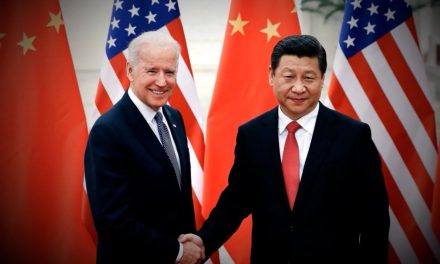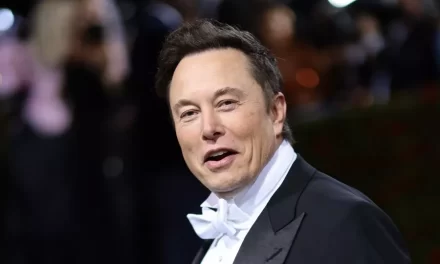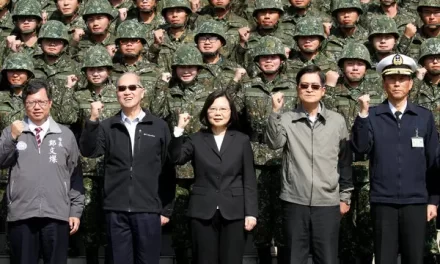BY LIANCHAO HAN AND BRADLEY A. THAYER
We laud the U.S.-ASEAN Special Summit recently held in Washington and believe this is an achievement of the Biden administration that may usher in a “new era” in relations between our country and the 10-member Association of Southeast Asian Nations (ASEAN) as part of the U.S. Indo-Pacific Strategy to counter China’s aggression in the region.
The summit agenda included a range of topics such as climate action, sustainable development, inclusive prosperity, maritime cooperation, health and education. However, it omitted democracy. In a side meeting between Secretary of State Antony Blinken and Vietnamese Prime Minister Pham Minh Chinh, the former assured the latter that the two countries are strong partners with “a shared vision for security in the region” and “for the strongest possible economic ties.” Moreover, “the United States very much supports a strong, independent, prosperous Vietnam,” Blinken said.
We find Blinken’s remarks disconcerting. Even though the Vietnamese Communist Party (VCP) has far surpassed the Chinese Communist Party (CCP) in terms of political reform, it is still essentially a one-party, communist dictatorship. No matter how strong, independent and prosperous an undemocratic Vietnam becomes, it would not be sincere in maintaining peace and may betray the U.S. and other ASEAN states. Vietnam’s quarrels with its former ally China are territorial, not ideological. We can foresee a future where Beijing accommodates Hanoi’s territorial claims, even in the South China Sea. In this case, Vietnam might switch sides as soon as its territorial disputes were resolved, making the regime an unreliable U.S. partner.
Given its often unhappy experiences with Vietnam and China, the United States has a plethora of historical lessons from which it can learn. To counter the Soviet Union’s global expansion, for example, President Richard Nixon opened the door to China with the hope of ending the Vietnam War and resisting Soviet expansion. The U.S. shifted China’s economic trajectory with the hope that prosperity would produce a middle class that would demand political changes. Lamentably, and disastrously for U.S. strategic interests, that proved to be wishful thinking. Washington ended up creating a formidable adversary that has become the greatest threat to U.S. national security, U.S. allies, and the existing world order.
Certainly, there are centripetal forces in the Sino-Vietnamese relationship that include the legacy of the 1979 war, border clashes for much the 1980s, the 1988 clash in the South China Sea, other territorial disputes, and China’s support for the Khmer Rouge after Vietnam’s invasion of Cambodia/Kampuchea. But there is also an ideological affinity between them. Like China, Vietnam is a one-party state. In fact, the CCP trained many VCP top leaders, incited and supported the VCP’s invasion of South Vietnam.
The VCP is as brutal, ruthless and inhuman as the CCP. It has a history of persecution and repression of its people, continuing to deny them political and civil rights. It is reported that the VCP regime today has jailed hundreds of activists and political prisoners, many of whom received unfair trials and harsh sentences. Human Rights Watch has confirmed that the Vietnamese government systematically restricts the rights to freedom of movement of political and human rights activists.
In this time of geopolitical flux caused by China’s rise and its effort to shape the international order toward totalitarian beliefs, values and ideology matter greatly. They are essential components in the West’s struggle against China and will help determine whether the U.S. maintains global leadership or cedes it to China’s totalitarian vision for global politics.
If the United States is to build a long-lasting partnership for peace with the countries of Southeast Asia, common values and respect for human rights are fundamental. For the U.S.-ASEAN partnership to effectively address the China threat, all partners’ trajectories must converge. This challenge is less a cultural one than it is one of conflicting values and ideology.
Unfortunately, in Vietnam, a few ruling elites reject constitutional democracy and universal values to keep their power. A consequence is that it is difficult for the U.S. to promote security and economic development there without promoting freedom, democracy, human dignity and the universal values enshrined in the United Nations Charter and the Universal Declaration of Human Rights. If the U.S. focuses only on building a strong, independent and prosperous Vietnam, it risks potentially creating another China. And if that were to happen, Vietnam would be a major regional force that would be hostile to U.S. and ASEAN interests. A communist Vietnam that disrespects human rights and human dignity, and does not want to share power with its people, is a danger to stability in the region — and to America’s ability to forge a strong, united network of states able to stand with Washington against Beijing.
As the U.S. is tested in the Sino-American security competition, it needs allies that possess a shared vision. It needs a solid partnership that can be sustained in the face of China’s aggression. To meet the dangers posed by Beijing, the U.S.-ASEAN partnership must be based on similar values.
It is critical, therefore, for the U.S. to realize that communist values and ideology are the definition of the VCP. That makes Vietnam a potentially unreliable partner for the U.S. and its democratic allies in the Indo-Pacific. The U.S. must promote democracy in Vietnam — and strengthen democracy in other ASEAN countries — to create the strongest coalition possible to resist China’s expansion and avoid the strategic errors of the past.
Lianchao Han is vice president of Citizen Power Initiatives for China. After the Tiananmen Square Massacre in 1989, he was one of the founders of the Independent Federation of Chinese Students and Scholars. He worked in the U.S. Senate for 12 years, as legislative counsel and policy director for three senators.
Bradley A. Thayer is the co-author of “How China Sees the World: Han-Centrism and the Balance of Power in International Politics.”
This article first appeared in The Hill on 05/22/22 1:00 PM ET




















